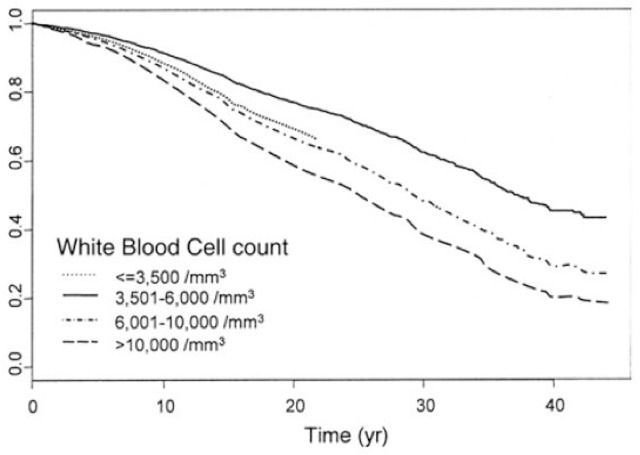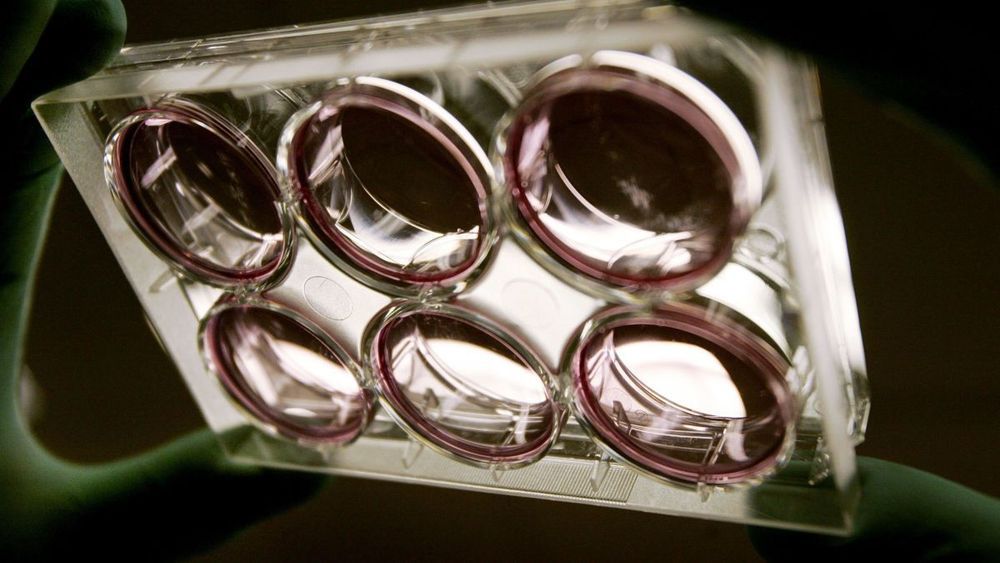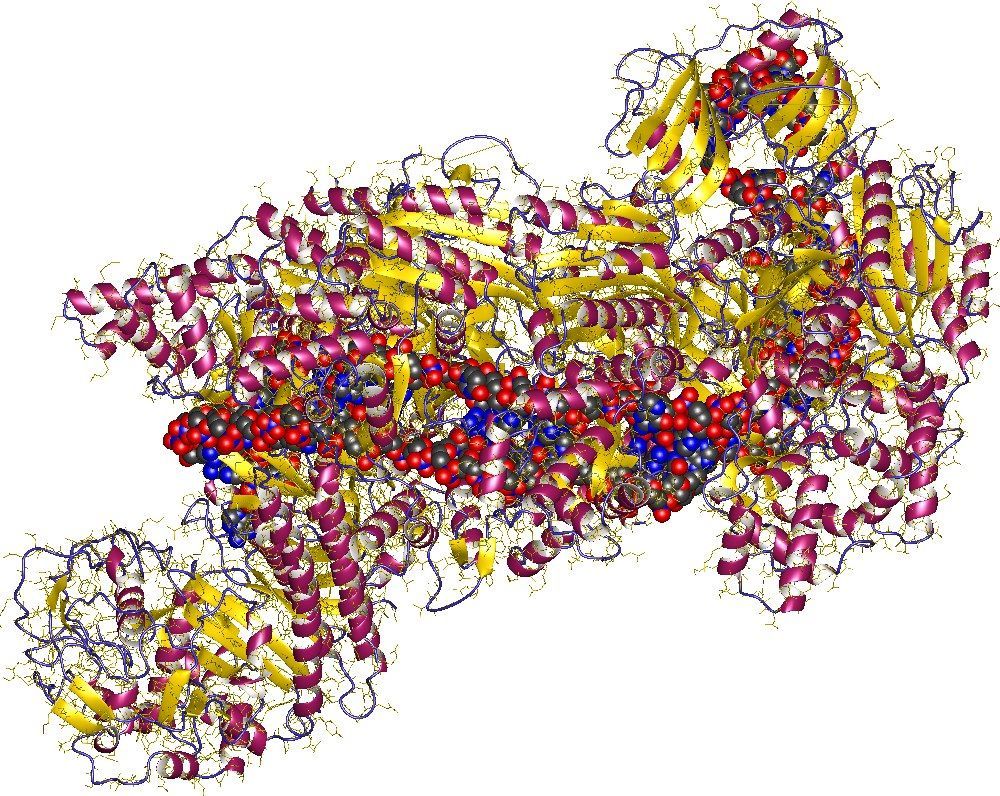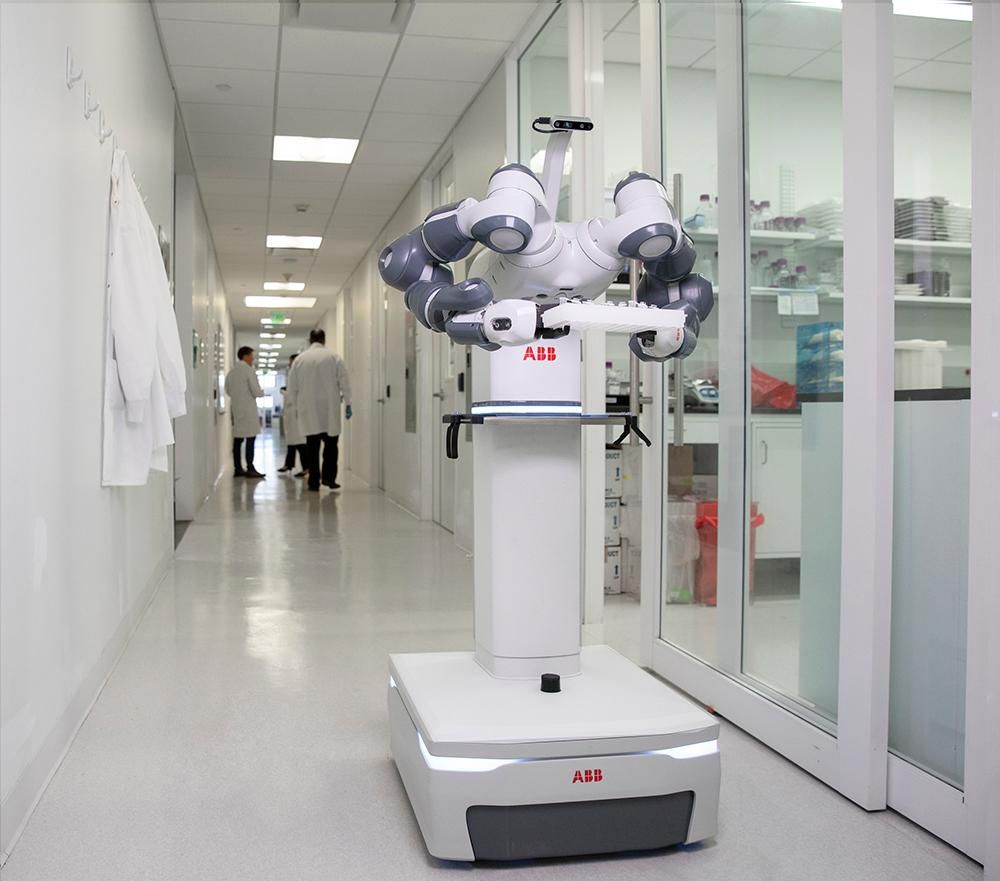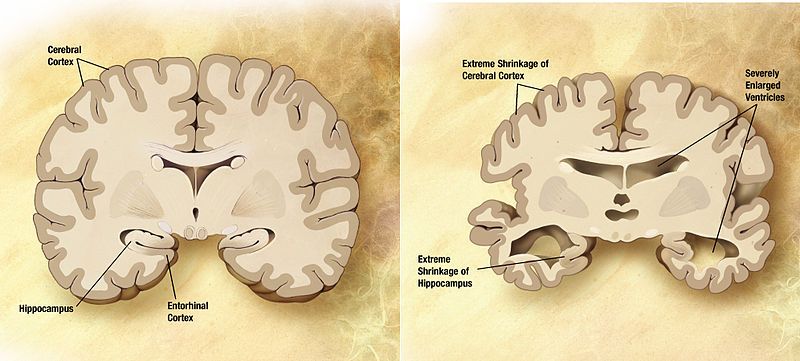Circulating levels of white blood cells (WBCs) are one of the 10 variables used to quantify biological age with PhenoAge (https://michaellustgarten.com/2019/09/09/quantifying-biological-age). The reference range for WBCs is 4.5 – 11 *109 cells/L, but within that range, what’s optimal?
Several studies have reported that WBCs greater than 5 are associated with an increased all-cause mortality risk (Ahmadi-Abhari et al. 2013, Samet et al. 2005, Weijenberg et al. 1996). While observational studies are important for identifying associations with mortality risk, stronger evidence is obtained when the data from the same subjects are tracked for a time period. Perhaps the best evidence for the association between WBCs with mortality risk comes from the Baltimore Longitudinal Study on Aging (BLSA), which studied 2803 men and women over a period of 44 years (Ruggiero et al. 2007). As shown below, subjects that had circulating WBCs between 3.5 – 6 had the best survival, whereas WBCs below 3.5, between 6 – 10, and 10+ each had successively higher risk. The 0.5 point on the y-axis of the curve (survival) is defined as 50% mortality, and is the point where half of the study subjects died, whereas the remaining 50% were still alive.
